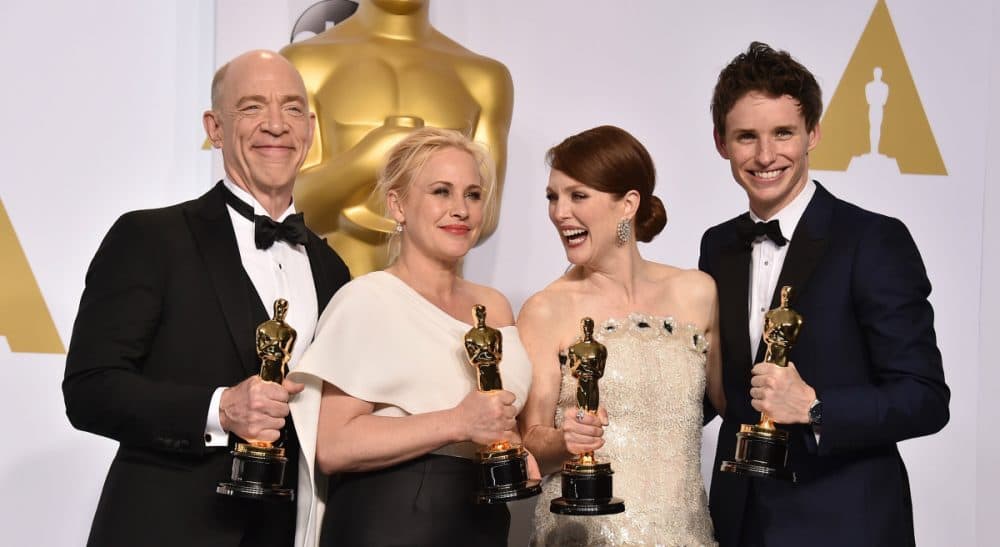Advertisement
Kill The Oscars?

The week after the Academy Awards were presented the question is in the air: Have the Oscars lost touch with mainstream moviegoers?
Let’s hope so.
Imagine a world where we await the opening of that final envelop of the evening, wondering whether “Transformers XIV” or “Sixty Shades of Grey” takes home Best Picture. That’s what we’d get if the Oscars became simply another popularity contest or box office measure.
the question we should be asking isn’t whether the Oscars are still relevant, but whether they should exist at all.
Hollywood is not about excellence, but about money; its target demographic primarily consists of 15-year-old boys and couples on date night usually looking for a little escapism. To more closely align the industry’s highest awards with mainstream tastes might mean “American Sniper” is more likely to win. It will definitely mean the director of “Hot Tub Time Machine 2” will have to add a trophy room to his Malibu mansion.
It’s always a losing battle to argue art versus commerce. Sure, there are great movies that have made bundles of money, but usually it’s the dreck that brings home the bacon. Just ask Liam Neeson, one time star of “Schindler’s List” who now pays the bills by remaking the same terrible action movie every six months or so.
The gulf between quality and quantity of millions earned was not always so wide. Mega-hits have often won Oscar gold: think “Titanic,” or even “Gladiator.” However, most people who view film as an art form would find it hard to argue the merits of either of these Oscar winners. They had scale more than nuance, and worked over our emotions with the subtlety Rocky applied against Apollo Creed (to cite an example of that rare film that was excellent, made millions and took home Best Picture).
Decades ago, when fewer films were released and Hollywood relied less on effects and promotion to win the hearts of moviegoers, popular fare often came out on top on Oscar night. “On the Waterfront,” “Kramer vs. Kramer,” “The Godfather,” “Rain Man” are just a few films that were critical and commercial hits that took home the top award. But as the blockbuster mentality fully took hold, the chasm between the good, the bad and the ugly grew. The good won the awards and the bad and the ugly made Adam Sandler a star.
Hollywood is not about excellence, but about money; its target demographic primarily consists of 15-year-old boys and couples on date night usually looking for a little escapism.
If one carries this argument just a little further, it soon becomes apparent that the question we should be asking isn’t whether the Oscars are still relevant, but whether they should exist at all. Judging any creative endeavor involves so much subjectivity that it becomes meaningless. Voters loved “Birdman.” My friends and I liked it but felt it was overrated. My neighbor hated it. And my mom was watching a Dolly Parton movie in the other room wondering why I keep whining about the Oscars. Awards for art are crude and empty.
The real value of the Academy Awards is that more than 36 million people watched this year’s ceremony. That’s down a whopping 15 percent, but still means ABC made a killing selling advertising. This ensures that the show isn’t going away any time soon, but it doesn’t mean it will ever be relevant again in this, the age of the blockbuster.
